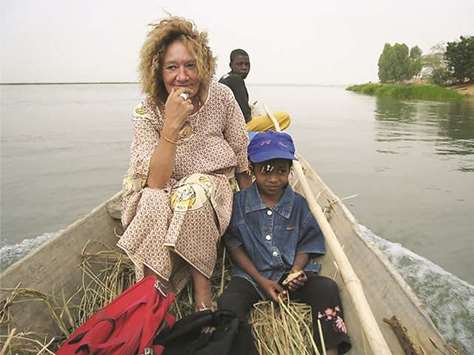Petronin ran a charity for malnourished and orphan children and had lived in the city of Gao, in Mali’s volatile northeast, for 15 years when she was snatched and driven away in a pickup truck.
The propaganda video was released late on Thursday by Jama’a Nusrat ul-Islam wa al-Muslimin (JNIM), which has been linked to the kidnapping of at least six Western hostages in recent years.
It shows brief footage of Petronin, 72, lying on a cot inside a tent and boxes of medication, while audio of French President Emmanuel Macron saying “I will protect you” plays on a loop.
It was not clear when the footage of Petronin was filmed.
Petronin’s nephew, Arnaud Granouillac, said his aunt’s health appeared to have deteriorated since the last images of her were released in the summer, and accused the French government of abandoning the family. “She’s exhausted,” Granouillac told BFM TV. “Since the day she was kidnapped, we’ve been on our own.I hope President Emmanuel Macron sees this video and realises we have to get my aunt out of there.”
French Foreign ministry spokeswoman Agnes von der Muhll told reporters that it was vital to remain discreet in such circumstances, but that French agencies were fully-mobilised and in contact with the family.
Hours after the video was released, gunmen attacked the army’s headquarters in the capital of Burkina Faso, as well as France’s embassy and the city’s downtown area. France has special forces fighting militants in the Sahel based in Burkina Faso, and other troops stationed across the region.
French civilians have long been favoured targets for kidnapping by criminal and hardline groups in the arid West African region, partly owing to perceptions that the French government is prepared to pay ransoms to secure their release.
Since France’s 2013 military intervention drove back Al Qaeda-linked groups that had seized cities and towns in northern Mali a year earlier, militants have repeatedly declared French citizens in West Africa to be targets.
Attacks by insurgents are on the rise across the Sahel despite the presence in Mali of a 13,000-strong UN force and the growing involvement of the French and US militaries.

